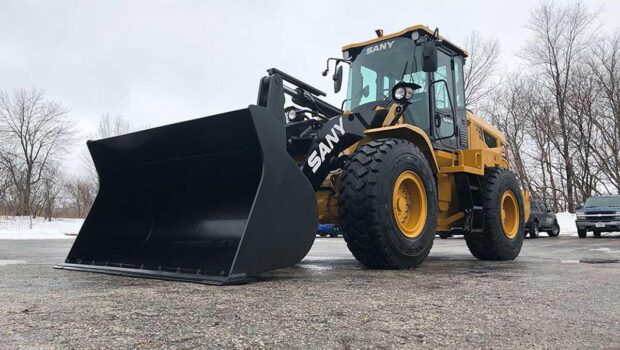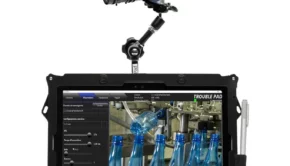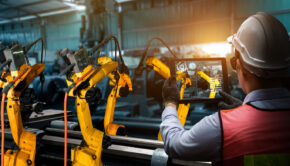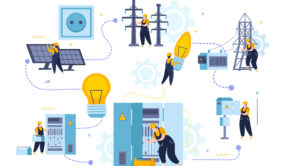Steps to Find the Perfect Loader for Your Construction Site
Are you on the hunt for a perfect loader for your construction site? Finding the correct loader is a daunting process, as it can be a game changer for your business regarding productivity and efficiency. Through this post, we’ll break down a few crucial steps that you can take to save yourself from choosing a sluggish and under-performing loader.
Let’s get started!
Assessing Your Construction Site’s Needs
You need to start by assessing your needs first. Here are a few questions that can help you assess what you are looking for.
- What tasks do you need the loader to perform?
- How much heavy lifting are you expecting?
- Are you dealing with rough terrains or tight spaces?
Understanding your construction sites’ requirements will prevent you from looking for unnecessary options and wasting time on them. Assessing what will get your job done will narrow down your options at a primary step.
Consider the size
Isn’t it evident that a larger loader can handle heavier loads and cover more ground? But trouble lies when it comes to working in a confined space. Whereas small loaders, which can serve easy maneuvering tasks, can still not be an absolute alternative to the standard loader due to its limitation of not being able to perform hefty tasks. By properly analyzing your project requirement, you can analyses the features you can compromise on to complete your job.
Evaluate Performance and Features
You will be offered two different ranges of features. We have enormous lifting skills, excellent traction, and mega horsepower in the first standard category. If, according to the project setting, you are ready to compromise on these performance traits, then your land some advanced features its alternatives provide. Those features are usually comfortable operators’ cabins, versatile attachments, and advanced control systems to enhance operators’ satisfaction. Based on your needs, you can choose between a loader that can handle heavy material or a loader that can navigate complex terrains.
Check Reliability and Maintenance
Who would want to deal with never ending maintenance headaches? Finding a compact track loader that can withstand the most challenging work environment with minimal maintenance is crucial. To find such a dependable loader, you must read customers’ reviews, talk to industry experts, and check the manufacturer’s track record.
Alongside this, consider the ease of maintenance, availability of spare parts, and manufacturer’s customer support service to guarantee your project a smooth lifespan of a loader.
Budget considerations
Don’t get lured in by the sirens of cheap prices alone, as you may compromise on performance, reliability and long-term savings. It’s crucial to strike a balance between financial affordability and the project’s requirements. You must set a realistic budget to explore the best loaders offering the best performance within your price range.
Exploring the market for loaders for sale in BC
You’ve got plenty of choices when choosing loaders. The most popular ones are as explained below:
1. Wheel loaders
These loaders are designed to work on tough terrains and handle all sorts of materials, making them the favourite choice in the market. From construction sites to landscaping projects these machines can
2. Front loaders
Front loaders are excellent for scooping, digging purposes and lifting heavy loads. In industries where heavy lifting is often involved and deals with gravel or sand, these loaders are prevalently used.
Considering the advantages and disadvantages of used and new loaders
Now that we have discussed the different kinds of used front loaders for sale in the market, you are also available with the option of choosing between used and new.
Pros of Used Loaders
- You can get a good loader at a cheaper rate as the older loaders can be bought at a significantly lower price than the new one.
- Old loaders are immediately available in the market since there are already in the market.
- Used loaders have already gone through depreciation in their initial phase, so their value may decrease more slowly than that of a new loader.
Cons of Used Loaders
- There are chances of wear and tear as these machines have already been extensively used. This can lead to constant breakdowns of machines amidst work. Maintenance costs could cause extra expenses.
- They have either limited or no warranty at all, so you have to bear the repair cost yourself.
- These may lack the latest features and technological advancements.
Pros of New Loaders
- You can access the latest design, features and advancements in the new loader.
- These usually come with warranties and brace your equipment against wear and tear expenses for a specific period.
- New loaders come with prime conditions as they have not been used before.
Cons of New Loaders
- You have to pay a higher cost for the new loaders as they come with the latest feature and reliability.
- After new loaders are purchased, their value starts to get depreciate. You may not be able to recoup the total amount you paid for it upon selling.
- Getting a new loader needs time, depending on the availability and manufacturer, as it needs to be produced and delivered to you.
Setting a Budget
To keep your financial resources in check, you need to set a budget that works out for you. Here are a few things to consider when buying a loader:
Determining the Financial Resources Available
Consider how much budget you have to allocate to the equipment. Based on that, you can choose the old or new, similarly standard loader or alternative.
Assessing the Cost Factors Associated with Loaders
You need to understand that throughout the lifespan of equipment, not just the initial costs but various costs come along. Having this in your knowledge will help you make informed and accurate decisions.
- While buying an old loader, make sure its cost is lesser than the newer one, as there will already be additional maintenance costs associated with it.
- If you’ve already made up your mind to purchase an older loader, you must be aware of the oil changes, general upkeep, and filter replacement expenses.
- Newer models come with fuel efficiency that can save you a lot of additional expenses. However, there is a deprecation disadvantage associated with it.
By carefully assessing these cost factors, you can prepare a budget to ensure buying a loader that does not place a financial burden on you. Be mindful of deciding to avoid any unpleasant surprises.
Evaluating Loader Specifications
It’s really important to determine the required load capacity and lift height, as for more extensive projects, you might need a loader that could handle tasks without breaking a sweat. Analyzing engine power and fuel efficiency is of utmost importance as these performance indicators signalize potential mechanical breakdowns and maintenance expenses. Maneuverability and size have a more significant role to play in navigating the machine through confined spaces, so these features prove to be of greater importance in urban areas. Last but not least, available attachments and compatibility should be analyses as well.
Researching Loader Brands and Dealers
Customer reviews and testimonials are the best secret weapon while making a wise purchase decision. You can start by exploring e-commerce websites, social media groups or forums relayed to loaders. One or two negative reviews do not mean disaster.
After you’re done with reviews, check the reputation and reliability of loader brands.
They are looking for well-established brands having a solid track record. Companies that have been in the market for a significant amount of time serve top-notch services. Certifications and awards also speak of their quality standards. You can even dig deep and find out if they have a history of manufacturing durable and reliable equipment.
After narrowing down your brand options, you must find a trustworthy dealer and supplier in BC. If you want top-notch customer service, start by asking in your local network. Word-of-mouth recommendations help find the right dealers. Even if this does not yield results, you can hit the internet again. Dealers with a solid online presence and customer support service are the ideal fit.
A website stuck for a long time or with more pop-ups can be a red flag. Look for responsive and transparent dealers and make your experience as easy as pie.
Visiting Loader Dealerships and Inspecting Loaders
While making an appointment with dealers, examine the loader’s insider out. Check for any signs of wear and tear. You need to inspect the engine, hydraulics and other important details. Also, test performance and functionality to ensure they work up to your expectation. In the end, you need to seek clarification on warranties, maintenance, and any other concerns.
Conclusion
Let’s recap the critical steps on your assignment to choose the best loader for your project. It’s all about research, evaluation, and making an informed choice. Research and evaluation are vital and should not be compromised. Later gather information, reviews and assess the loader brand and quality. Make an informed decision by setting yourself up for maximum efficiency and productivity.
















